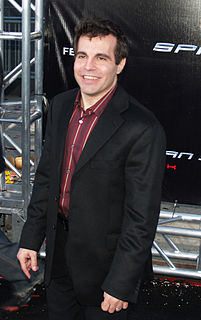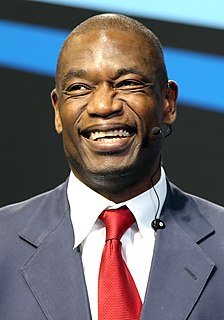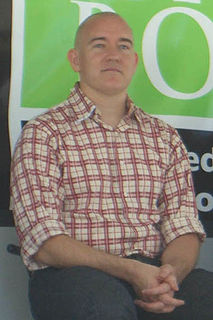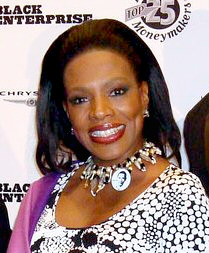A Quote by Eddy de Clercq
Don't forget that at the end of the 70s people were much more into wild experimentation and hedonistic adventures. There was not really a fear of sexual diseases like HIV or aids back then, all that came later.
Related Quotes
If people are encouraged to come out and say they're HIV-positive and they're given their treatments, then obviously, the people who are marginalized - like intravenous drug users, prisoners, people are made to feel less-than - if they're given the support of the government, and they're given the funding, then it's going to help solve the spread of AIDS and HIV in America.
Africa needs more funding to continue to fight all of those diseases. We are losing more than 1.3 million young children under the age of five every year because of malaria. We've already lost 25 million people to the pandemic of HIV-AIDS. More people are dying now from typhoid fever. Diabetes is on the rise.
Because gay people were so much more visible, violence against gays was more common and reported on. But they were definitely related to each other. In the wake of AIDS, gay people felt like they had to organize, become much more active and visible. AIDS fostered a gay rights movement that made gay people more powerful and more vulnerable at the same time.
The 60s were a continuation of the 50s much more than people realized. Certainly in some countries, like Britain, there was still a culture of deference, whereas in the 70s we really are in a time of angry transition. The generation that came into young adulthood in the 70s couldn't find jobs; that wasn't true in my generation. They entered a time when two depressing things hit them both at the same time.
There's so much stigma around HIV/AIDS. It's a challenging issue, and the people that already have been tested and know their status find it very, very hard to disclose their status, to live with that virus, and to even seek out the kind of information they need. This experience of going to South Africa a decade ago really woke me up to the scale of the HIV/AIDS pandemic in sub-Saharan Africa, how it was affecting women and their children. I haven't been able to walk away from it.
These weren't college kids on acid. They were preachers, and bankers, and farmers, and the salt of American society subscribing to ideas that now seem so wild to us. These people had the most radical visions of what the future could be. And this was happening in an era we don't typically associate with sexual experimentation, or communism, or things like that.
For me, the stamp that I impose on stuff comes from the fact that in the '80s, when I was starting to write movies, I looked back to the '70s. So the films I enjoyed as a kid were the thrillers that came out of the '70s. Back then, you didn't have action movies; you had adventure films or thrillers.































